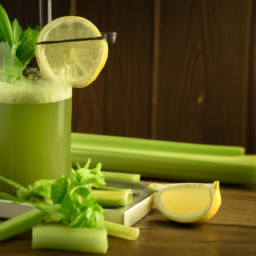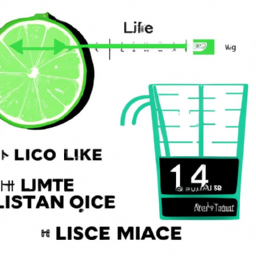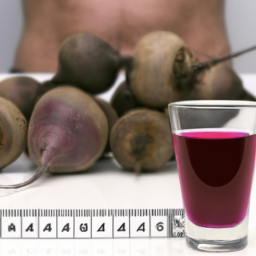As a fan of the tangy and invigorating taste of lime juice, I often find myself considering the boundaries of how much is appropriate to consume. While lime juice is rich in vital vitamins and minerals, it can also present health risks if consumed excessively. It is important to understand the recommended daily intake of lime juice and be mindful of the potential dangers of overindulgence.
In this article, we’ll explore the benefits of lime juice, the risks associated with excessive consumption, and how to incorporate it into your diet safely. We’ll also dispel common myths and misconceptions about lime juice and provide tips for reducing your intake if necessary.
So whether you’re a lime juice enthusiast like me or just looking to improve your overall health, keep reading to learn more about how much lime juice is too much.
Key Takeaways
- Excessive consumption of lime juice can lead to negative health consequences such as tooth enamel erosion, heartburn, upset stomach, acid reflux, kidney damage, and more.
- Symptoms of overconsumption include stomach upset, diarrhea, vomiting, kidney problems, abdominal pain, nausea, and frequent urination.
- Lime juice should be consumed in moderation and balanced with other sources of citrus to avoid negative health consequences.
- Diluting lime juice with water, being mindful of portion sizes, and incorporating a variety of whole, unprocessed foods in the diet are important for safe consumption.
The Health Benefits of Lime Juice
You’ll be amazed at how much your body can benefit from drinking lime juice regularly! Lime juice is packed with vitamin C, an essential nutrient that helps keep our immune system strong and healthy.
It also contains antioxidants that protect our body from harmful free radicals, reducing the risk of chronic diseases such as cancer and heart disease. Drinking lime juice can also aid in weight loss.
Lime juice is low in calories and has a refreshing taste that can replace sugary drinks. Lime juice can be added to water, smoothies, and even used in lime juice recipes for marinades and dressings.
Incorporating lime juice into your daily diet can be a healthy and delicious way to support your overall wellness. With all these benefits, it’s important to know the recommended daily intake of lime juice to avoid consuming too much.
Recommended Daily Intake of Lime Juice
It’s important to know the recommended amount of lime juice you can consume in a day. While lime juice is packed with nutrients and offers numerous health benefits, consuming too much of it can also have drawbacks.
Ideally, the daily intake of lime juice should be limited to no more than 2 tablespoons, or approximately 30 milliliters, per day. Benefits of consuming lime juice include hydration, improved digestion, and a boost to the immune system.
However, overconsumption of lime juice can lead to issues like tooth enamel erosion, heartburn, and an upset stomach. Therefore, it’s important to consider alternative citrus options, such as lemons or grapefruits, to prevent overconsumption and its associated health risks.
In the next section, we’ll explore these health risks associated with overconsumption of lime juice.
Health Risks Associated with Overconsumption
Who knew that something as seemingly harmless as drinking too many glasses of lime juice could actually lead to some unpleasant health consequences? While lime juice is generally considered a healthy beverage due to its high vitamin C content and antioxidant properties, overconsumption can have negative effects on the body.
According to experts, drinking too much lime juice can cause various health problems such as tooth erosion, acid reflux, and kidney damage. To avoid these health consequences, it’s important to practice moderation when consuming lime juice. The recommended daily intake of lime juice is about one to two glasses, depending on the individual’s age, sex, and overall health status.
It’s also advisable to dilute lime juice with water or mix it with other beverages to reduce its acidity and prevent tooth erosion. By following these moderation practices, you can enjoy the health benefits of lime juice without compromising your overall well-being.
As you can see, overconsumption of lime juice can have detrimental effects on your health. In the next section, we’ll delve deeper into the symptoms of lime juice overconsumption and what you can do to prevent them.
Symptoms of Lime Juice Overconsumption
If you’re not careful about how many glasses of lime juice you drink, there can be some serious symptoms of overconsumption that you should be aware of. The potential dangers of drinking too much lime juice include stomach upset, diarrhea, and vomiting.
In more severe cases, overconsumption can lead to kidney problems, such as kidney stones or even kidney failure. It’s important to also be aware of the warning signs of overconsumption, which can include abdominal pain, nausea, and frequent urination.
If you experience any of these symptoms after consuming lime juice, it’s best to cut back or stop drinking it altogether. Now, let’s explore how to incorporate lime juice into your diet safely by following a few simple guidelines.
How to Incorporate Lime Juice into Your Diet Safely
To safely incorporate lime juice into your diet, you can follow these simple guidelines. First, balance your intake of lime juice with other sources of citrus. While lime juice is a great addition to many dishes, it shouldn’t be the only source of citrus in your diet. Try incorporating other citrus fruits such as oranges or grapefruits to balance out your intake of vitamin C and other nutrients.
Another way to safely consume lime juice is to consider alternatives. If you’re consuming large amounts of lime juice, try swapping it out for other citrus juices or even non-citrus options like pomegranate or cranberry juice. This can help you avoid overconsumption of lime juice while still enjoying the taste and health benefits of citrus.
When it comes to incorporating lime juice into your diet, it’s important to find a balance and consider alternatives. However, if you do experience symptoms of overconsumption, there are steps you can take to reduce your intake.
Tips for Reducing Lime Juice Overconsumption
Reducing overconsumption of lime juice can be achieved through implementing simple strategies. One of the most effective ways is to try alternative citrus options. Lemon juice, grapefruit juice, and orange juice are all great substitutes for lime juice. These alternatives offer similar nutritional benefits to lime juice and can be used in a variety of dishes as a flavor enhancer.
Another strategy to reduce lime juice overconsumption is to dilute it with water or other liquids. This not only reduces the amount of lime juice you consume but also helps to reduce the acidity levels in the drink or dish. Additionally, be mindful of portion sizes and avoid drinking or eating large amounts of lime juice in one sitting.
By incorporating these strategies, you can enjoy the benefits of lime juice without the risk of overconsumption. To ensure optimal health and safety, it’s important to take precautions for individuals with pre-existing health conditions.
Precautions for Individuals with Pre-Existing Health Conditions
Be aware that for individuals with pre-existing health conditions, such as those with kidney problems, consuming excessive amounts of citrus fruits can lead to elevated potassium levels, which can be dangerous and even life-threatening. Lime juice, in particular, is high in potassium content, with one tablespoon containing approximately 24mg of potassium. This may not seem like much, but for individuals with kidney disease who need to limit their intake, it can add up quickly.
To further illustrate this point, here is a table outlining the potassium content of various lime juice servings:
| Lime Juice Serving Size | Potassium Content |
|---|---|
| 1 tablespoon | 24mg |
| 1 lime (44g) | 102mg |
| 1 cup (240ml) | 163mg |
It is important to be mindful of the amount of lime juice consumed, especially for those with pre-existing health conditions. It is recommended that individuals with kidney disease consult with their healthcare provider to determine a safe limit for their lime juice intake.
Importance of Consulting a Healthcare Professional
As someone with pre-existing health conditions, it’s important for me to consult with a healthcare professional. They can help me determine safe intake levels of certain foods and beverages, such as lime juice.
Addressing any health concerns that may arise from consuming certain foods is crucial in maintaining my overall well-being. By working with a healthcare professional, I can develop a safe and healthy diet plan tailored to my specific needs and medical history.
Discussing Safe Intake Levels
You’ll want to know how much lime juice is safe to consume before experiencing any negative effects. While lime juice is a great source of vitamin C and antioxidants, consuming too much of it can lead to potential risks. The safe consumption levels of lime juice depend on several factors, such as age, gender, weight, and overall health.
To give you an idea of the safe intake levels of lime juice, take a look at the table below:
| Age | Gender | Safe Intake Levels |
|---|---|---|
| Adults | Male | 2-3 lime wedges per day |
| Adults | Female | 1-2 lime wedges per day |
| Children | Male and Female | 1/2 to 1 lime wedge per day |
It’s important to note that these are general guidelines, and consulting a healthcare professional is still the best way to determine the safe intake levels that are specific to your individual needs. In the next section, we’ll discuss addressing health concerns related to lime juice consumption.
Addressing Health Concerns
Now let’s tackle any potential health issues that may arise from regularly indulging in this zesty delight. Lime juice is a great source of vitamin C, which is essential for the growth and repair of tissues in our body, and for boosting our immune system.
However, too much consumption of lime juice can lead to some health concerns, especially when it comes to digestion. Drinking excessive amounts of lime juice may cause gastrointestinal problems such as heartburn, acid reflux, and stomach irritation. This is because lime juice is highly acidic and can irritate the lining of the digestive tract.
Aside from digestion, lime juice may also affect skin health. Lime juice contains citric acid, which can cause photosensitivity or heightened sensitivity to sunlight. This can result in redness, rashes, and other skin irritations when exposed to sunlight. It is important to note that these effects are more pronounced when lime juice is applied topically to the skin, rather than when consumed orally.
Overall, it’s important to consume lime juice in moderation and consult with a healthcare provider if you have any concerns about its effects on your health. Given these potential health concerns, it’s important to develop a safe and healthy diet plan that incorporates a variety of foods and nutrients. This can help ensure that you are getting all the nutrients your body needs, while avoiding any negative effects of excessive consumption of any one food or drink.
Developing a Safe and Healthy Diet Plan
To create a balanced meal plan that supports my overall well-being, I understand the importance of incorporating a variety of nutrient-rich foods and avoiding overconsumption of any one item. This includes understanding my nutrient requirements and ensuring that I am consuming adequate amounts of essential nutrients such as protein, carbohydrates, healthy fats, vitamins, and minerals.
Here are four ways I ensure that my diet plan is safe and healthy:
- I focus on whole, unprocessed foods that are rich in nutrients and avoid foods that are high in added sugars, salt, and unhealthy fats.
- I aim to consume a variety of fruits and vegetables of different colors, which provide a range of essential vitamins and minerals.
- I include lean sources of protein such as chicken, fish, and legumes, which are important for muscle repair and growth.
- I make sure to stay hydrated by drinking plenty of water throughout the day and avoid sugary drinks.
By following these guidelines, I can ensure that my diet plan is balanced and supports my overall health and well-being.
In the next section, we’ll explore some common myths and misconceptions about lime juice.
Common Myths and Misconceptions About Lime Juice
If you’re convinced that adding lime juice to every dish is the secret to culinary perfection, you might be buying into a few tall tales. There are a number of lime juice myths that are floating around, and it’s important to separate the facts from the fiction. One of the most common myths is that lime juice can cure everything from acne to cancer. While there are some health benefits associated with lime juice, such as its high vitamin C content and its ability to aid in digestion, it’s important to remember that lime juice is not a cure-all.
Another common myth is that lime juice is a natural bleach and can be used to lighten the skin. While it’s true that lime juice has a mild bleaching effect, it’s not a good idea to use it as a skin lightener. Lime juice is acidic and can actually cause skin irritation and even burns if used improperly. It’s important to remember that while lime juice can be a healthy addition to your diet, it’s not a miracle cure or a miracle ingredient. Incorporate it into your cooking in moderation, and enjoy it for what it is: a flavorful and nutritious ingredient.
| Myth | Fact | ||
|---|---|---|---|
| Lime juice can cure cancer | While lime juice does contain antioxidants, it is not a cure for cancer | ||
| Lime juice is a natural bleach | While lime juice can have a mild bleaching effect, it can also cause skin irritation and burns | ||
| Lime juice is a good source of calcium | Lime juice is actually not a significant source of calcium, but it does contain high levels of vitamin C | Vitamin C in lime juice helps boost the immune system and improve skin health. |
Frequently Asked Questions
Can lime juice be harmful to pregnant women?
As a pregnant woman, it’s important to be mindful of the amount of lime juice consumed. While it may help with morning sickness, excessive intake can lead to gestational diabetes. Consult with a healthcare provider for personalized recommendations.
Is it safe to consume lime juice with certain medications?
It is important to be cautious when consuming lime juice with antibiotics, as it can affect their effectiveness. Lime juice may also interact with certain blood pressure medications, so it’s best to consult with a healthcare provider before consuming them together.
Can lime juice cause tooth decay or enamel erosion?
Oh, sure, I love nothing more than a refreshing glass of lime juice. Especially when it comes with a side of tooth sensitivity and enamel erosion. Lime juice’s high acidity levels can definitely do a number on your teeth.
Does the type of lime used affect the health benefits of the juice?
Different varieties of lime for juice have varying levels of nutritional value. Key limes are higher in vitamin C and antioxidants than Persian limes. However, both can provide health benefits when consumed in moderation.
Can lime juice be used as a substitute for other citrus juices in recipes?
Yes, lime juice can be a substitute for other citrus juices in recipes. It has a unique flavor profile that can enhance dishes like guacamole, ceviche, and marinades. Lime juice substitutes include lemon juice, orange juice, and grapefruit juice. Experiment with different combinations to find your favorite lime juice recipe.
Conclusion
In conclusion, lime juice is a delicious and nutritious addition to any diet, but it’s important to consume it in moderation. As someone who enjoys lime juice, I was surprised to learn about the potential health risks associated with overconsumption.
However, I’m now more aware of the recommended daily intake and the symptoms of lime juice overconsumption. Coincidentally, I recently experienced some stomach discomfort after consuming large amounts of lime juice in my water. I realized that I had unknowingly exceeded the recommended daily intake, but I was able to alleviate my symptoms by drinking plenty of water and reducing my lime juice intake.
It’s important to listen to our bodies and make adjustments accordingly. As with any dietary changes or concerns, it’s important to consult with a healthcare professional. By incorporating lime juice into our diets safely and in moderation, we can enjoy its many health benefits while avoiding any potential risks.









